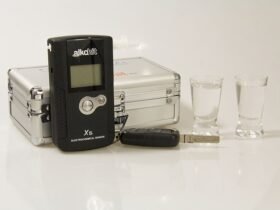Why Does My Heart Rate Go Up?
Generally, heart rate goes up when you do activities like exercises, running, climbing stairs, and much more. This is because the heart tries to send more oxygen to muscles during those activities, so the heart rate increases. The overall fitness level also decides the heart rate.
Other reasons for heart rate going up include low sugar, stress, panic attacks, anxiety, dehydration, and much more. It is necessary to reach the doctor as soon as possible if you have any condition or have a high beat rate for no reason.
What Happens During a Heart Attack?
During a heart attack, the BPM can stay the same or can go up. So, the good decision is to visit a hospital. The heart muscle receives less oxygen during a heart attack, so it tries to beat more to get a more oxygen-rich blood supply. Thus, heart rate goes up during a heart attack.
Heart attacks happen because of blockage in the coronary artery of our heart. The coronary artery provides fresh blood to the heart muscle like an artery that provides blood supply to all over the body. The more blockage in the artery means the more severe the heart attack will be. If it is not treated on time, it can lead to complete heart failure, or the portion of the heart muscle dies.
High Heart Rate Means Heart Attack?
Not at all. A high heart rate is no sign of a heart attack in some cases. Generally, low activity, sedentary lifestyle, anxiety, panic attacks, dehydration, anemia, and low sugar levels cause the heart rate to increase. So your question is, how many bpm is a heart attack? The answer is that a generally elevated heart rate of more than 100 bpm can cause a heart attack.
What Are the Symptoms of Heart Attack?
- Discomfort in various areas of the body like shoulders, arms, neck, back, and stomach
- Chest pain, chest discomfort, tightness in the chest
- Vomiting, nausea, sweating, and lightheadedness
What Factors Causes Heart Attack?
- History of cardiac illness in the family
- Smoking, high blood pressure, older age
- High bad cholesterol
- Sedentary lifestyle
- High sodium diet
- Stress


Leave a Reply